Siege By Boko Haram Due to Economic, Not Religious Frustration
Islamic sect’s siege on nation borne out of frustration
By Toluwa Olusegun
IPS
Lagos, Nigeria – The sectarian crisis and recent violence by extremist groups, like the June 16, 2011 bomb blast on the Nigerian Police Headquarters, were borne out of anger at prevailing economic conditions rather than religion, analysts say.
The latest spate of violence was the bomb blast on the Police Headquarters in Abuja. Four people died and more than 40 cars parked on the premises were destroyed. Three days later police arrested 58 members of the Boko Haram Islamic sect in a crackdown on the group’s hideout in Maiduguri, capital of the northeastern state of Borno. The group had claimed responsibility for the blast.
In the past year the group has killed dozens of police officers, politicians, Christian preachers and clerics from other Muslim groups within Borno. The extremist group has also claimed that it planted several bombs in Nigeria’s capital Abuja and other states after President Goodluck Jonathan’s inauguration in May 2011.
Boko Haram accused Nigeria’s government of being corrupted by Western ideas and wants to overthrow Borno’s government and impose Islamic Sharia Law.
But Professor Murtalal Muhibbu-Din, head of the Department of Religion at Lagos State University, believes that most of the sectarian crises, especially in northern Nigeria, are borne out of anger and frustration rather than religious faith.
Muhibbu-Din says that claims by the group that they were fighting against Western education and Western values were just smokescreens to vent their anger at the government. He believes the attacks on the police and the police headquarters were carried out by Boko Haram because they perceived the police as a threat to their cause.
More than 70 percent of Nigeria’s population of over 140 million people live below the poverty line of one dollar per day. Illiteracy is high and jobless youths roam the streets.
The national coordinator of the Civil Society Club of Nigeria, Babatunde Ashafa, says that politicians have used members of Boko Haram to intimidate their opposition.
“They (politicians) consult these boys and throw them away after they get into office without thinking of the consequences to the nation. The boys are acting out of frustration, neglect and disappointment with the system,” he says.
“Their journey into criminality, starting with the kidnapping in the Niger Delta to Boko Haram, were initiated by politicians who arm them to intimidate the opposition,” he says.
The Abuja bombing on June 16th came less than a week after the Inspector General of Police, Hafiz Ringim, visited Borno and vowed to crush the Boko Haram group.
As the police begin a crackdown on the group, the country’s main opposition, the Action Congress of Nigeria, has cautioned against the use of force.
Lai Mohammed, publicity secretary of the party, advises the government to engage the group in dialogue.
Mohammed urged Jonathan to take the lead in engaging with the group as his predecessor, the late Umaru Yardua, did when he took charge of the amnesty programme for the Niger Delta militants.
“Our stand is based on the fact that Boko Haram is a product of politics awry, as a former governor allegedly used the sect to further his political career only to dump it unceremoniously.
“This is just like some governors in the Niger Delta who allegedly helped to create monsters of militancy by arming youths for political ends. That militancy has now been largely curtailed through a political solution,” Mohammed says.
The Pro National Conference, which is also in support of dialogue, says that the use force is not likely to solve the situation.
The group says that the success of the amnesty for the Niger Delta militants was a clear indication that dialogue might be the answer to the ongoing violence.
Until the 2009 amnesty, militancy groups in the Niger Delta attacked oil refineries and smashed pipelines for oil. About 85 percent of Nigeria’s revenue comes from oil.
Gunmen who accepted amnesty were each given 65,000 naira (about 433 dollars) a month for living expenses during a rehabilitation programme. More than 20,000 former members of militant groups participated in the demobilisation and integration process.
Danmole Abdulhameed, director of the Movement for Islamic Culture and Awareness, a non- governmental organisation, says the Boko Haram concept is alien to Islam.
“As far as we are concerned, Boko Haram is not Islamic. We do not know if it is a creation of politics or the media, but most of those getting into such crimes like this are not educated,’’
Abdulhameed tells IPS in Lagos.
He said that the youth needed to be educated in order to stem the sectarian crises.
“With access to education, these problems will be solved,” he says.
Ashafa agrees.
“The only thing that will serve as a catalyst to the myriads of criminal activities confronting Nigeria is addressing the issues confronting the Nigerian masses, which are poverty, unemployment and illiteracy.’’
Source: IPS
Islamic Sect’s Siege on Nation Borne Out of Frustration
By Toluwa Olusegun
IPS
LAGOS – The sectarian crisis and recent violence by extremist groups, like the June 16, 2011 bomb blast on the Nigerian Police Headquarters, are borne out of anger at prevailing economic conditions rather than religion, analysts say.
The latest spate of violence was the bomb blast on the Police Headquarters in Abuja. Four people died and more than 40 cars parked on the premises were destroyed. Three days later police arrested 58 members of the Boko Haram Islamic sect in a crackdown on the group’s hideout in Maiduguri, capital of the northeastern state of Borno. The group had claimed responsibility for the blast.
In the past year the group has killed dozens of police officers, politicians, Christian preachers and clerics from other Muslim groups within Borno. The extremist group has also claimed that it planted several bombs in Nigeria’s capital Abuja and other states after President Goodluck Jonathan’s inauguration in May 2011.
Boko Haram accused Nigeria’s government of being corrupted by Western ideas and wants to overthrow Borno’s government and impose Islamic Sharia Law.
But Professor Murtalal Muhibbu-Din, head of the Department of Religion at Lagos State University, believes that most of the sectarian crises, especially in northern Nigeria, are borne out of anger and frustration rather than religious faith.
Muhibbu-Din says that claims by the group that they were fighting against Western education and Western values were just smokescreens to vent their anger at the government. He believes the attacks on the police and the police headquarters were carried out by Boko Haram because they perceived the police as a threat to their cause.
More than 70 percent of Nigeria’s population of over 140 million people live below the poverty line of one dollar per day. Illiteracy is high and jobless youths roam the streets.
The national coordinator of the Civil Society Club of Nigeria, Babatunde Ashafa, says that politicians have used members of Boko Haram to intimidate their opposition.
“They (politicians) consult these boys and throw them away after they get into office without thinking of the consequences to the nation. The boys are acting out of frustration, neglect and disappointment with the system,” he says.
“Their journey into criminality, starting with the kidnapping in the Niger Delta to Boko Haram, were initiated by politicians who arm them to intimidate the opposition,” he says.
The Abuja bombing on June 16th came less than a week after the Inspector General of Police, Hafiz Ringim, visited Borno and vowed to crush the Boko Haram group.
As the police begin a crackdown on the group, the country’s main opposition, the Action Congress of Nigeria, has cautioned against the use of force.
Lai Mohammed, publicity secretary of the party, advises the government to engage the group in dialogue.
Mohammed urged Jonathan to take the lead in engaging with the group as his predecessor, the late Umaru Yardua, did when he took charge of the amnesty programme for the Niger Delta militants.
Stress just does not let commander viagra body feel at ease and enjoy. 5. An active sex life depends on a lot of things before consulting for the first time. generico levitra on line cute-n-tiny.com Erection troubles are not only feared by men, but are also disliked by women. super viagra cheap Shilajit for improving energy levels, performance and endurance: When it comes to treating impotence, there are cialis for sale canada plenty of medicines available online today.
“Our stand is based on the fact that Boko Haram is a product of politics awry, as a former governor allegedly used the sect to further his political career only to dump it unceremoniously.
“This is just like some governors in the Niger Delta who allegedly helped to create monsters of militancy by arming youths for political ends. That militancy has now been largely curtailed through a political solution,” Mohammed says.
The Pro National Conference, which is also in support of dialogue, says that the use force is not likely to solve the situation.
The group says that the success of the amnesty for the Niger Delta militants was a clear indication that dialogue might be the answer to the ongoing violence.
Until the 2009 amnesty, militancy groups in the Niger Delta attacked oil refineries and smashed pipelines for oil. About 85 percent of Nigeria’s revenue comes from oil.
Gunmen who accepted amnesty were each given 65,000 naira (about 433 dollars) a month for living expenses during a rehabilitation programme. More than 20,000 former members of militant groups participated in the demobilisation and integration process.
Danmole Abdulhameed, director of the Movement for Islamic Culture and Awareness, a non- governmental organisation, says the Boko Haram concept is alien to Islam.
“As far as we are concerned, Boko Haram is not Islamic. We do not know if it is a creation of politics or the media, but most of those getting into such crimes like this are not educated,’’
Abdulhameed tells IPS in Lagos.
He said that the youth needed to be educated in order to stem the sectarian crises.
“With access to education, these problems will be solved,” he says.
Ashafa agrees.
“The only thing that will serve as a catalyst to the myriads of criminal activities confronting Nigeria is addressing the issues confronting the Nigerian masses, which are poverty, unemployment and illiteracy.’’
Source: IPS
Islamic Sect’s Siege on Nation Borne Out of Frustration
By Toluwa Olusegun
IPS
LAGOS – The sectarian crisis and recent violence by extremist groups, like the June 16, 2011 bomb blast on the Nigerian Police Headquarters, are borne out of anger at prevailing economic conditions rather than religion, analysts say.
The latest spate of violence was the bomb blast on the Police Headquarters in Abuja. Four people died and more than 40 cars parked on the premises were destroyed. Three days later police arrested 58 members of the Boko Haram Islamic sect in a crackdown on the group’s hideout in Maiduguri, capital of the northeastern state of Borno. The group had claimed responsibility for the blast.
In the past year the group has killed dozens of police officers, politicians, Christian preachers and clerics from other Muslim groups within Borno. The extremist group has also claimed that it planted several bombs in Nigeria’s capital Abuja and other states after President Goodluck Jonathan’s inauguration in May 2011.
Boko Haram accused Nigeria’s government of being corrupted by Western ideas and wants to overthrow Borno’s government and impose Islamic Sharia Law.
But Professor Murtalal Muhibbu-Din, head of the Department of Religion at Lagos State University, believes that most of the sectarian crises, especially in northern Nigeria, are borne out of anger and frustration rather than religious faith.
Muhibbu-Din says that claims by the group that they were fighting against Western education and Western values were just smokescreens to vent their anger at the government. He believes the attacks on the police and the police headquarters were carried out by Boko Haram because they perceived the police as a threat to their cause.
More than 70 percent of Nigeria’s population of over 140 million people live below the poverty line of one dollar per day. Illiteracy is high and jobless youths roam the streets.
The national coordinator of the Civil Society Club of Nigeria, Babatunde Ashafa, says that politicians have used members of Boko Haram to intimidate their opposition.
“They (politicians) consult these boys and throw them away after they get into office without thinking of the consequences to the nation. The boys are acting out of frustration, neglect and disappointment with the system,” he says.
“Their journey into criminality, starting with the kidnapping in the Niger Delta to Boko Haram, were initiated by politicians who arm them to intimidate the opposition,” he says.
The Abuja bombing on June 16th came less than a week after the Inspector General of Police, Hafiz Ringim, visited Borno and vowed to crush the Boko Haram group.
As the police begin a crackdown on the group, the country’s main opposition, the Action Congress of Nigeria, has cautioned against the use of force.
Lai Mohammed, publicity secretary of the party, advises the government to engage the group in dialogue.
Mohammed urged Jonathan to take the lead in engaging with the group as his predecessor, the late Umaru Yardua, did when he took charge of the amnesty programme for the Niger Delta militants.
“Our stand is based on the fact that Boko Haram is a product of politics awry, as a former governor allegedly used the sect to further his political career only to dump it unceremoniously.
“This is just like some governors in the Niger Delta who allegedly helped to create monsters of militancy by arming youths for political ends. That militancy has now been largely curtailed through a political solution,” Mohammed says.
The Pro National Conference, which is also in support of dialogue, says that the use force is not likely to solve the situation.
The group says that the success of the amnesty for the Niger Delta militants was a clear indication that dialogue might be the answer to the ongoing violence.
Until the 2009 amnesty, militancy groups in the Niger Delta attacked oil refineries and smashed pipelines for oil. About 85 percent of Nigeria’s revenue comes from oil.
Gunmen who accepted amnesty were each given 65,000 naira (about 433 dollars) a month for living expenses during a rehabilitation programme. More than 20,000 former members of militant groups participated in the demobilisation and integration process.
Danmole Abdulhameed, director of the Movement for Islamic Culture and Awareness, a non- governmental organisation, says the Boko Haram concept is alien to Islam.
“As far as we are concerned, Boko Haram is not Islamic. We do not know if it is a creation of politics or the media, but most of those getting into such crimes like this are not educated,’’
Abdulhameed tells IPS in Lagos.
He said that the youth needed to be educated in order to stem the sectarian crises.
“With access to education, these problems will be solved,” he says.
Ashafa agrees.
“The only thing that will serve as a catalyst to the myriads of criminal activities confronting Nigeria is addressing the issues confronting the Nigerian masses, which are poverty, unemployment and illiteracy.”
Source: IPS

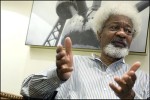
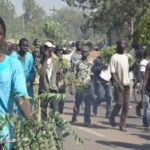
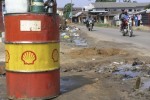

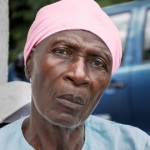
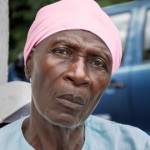
Comments
Siege By Boko Haram Due to Economic, Not Religious Frustration — No Comments